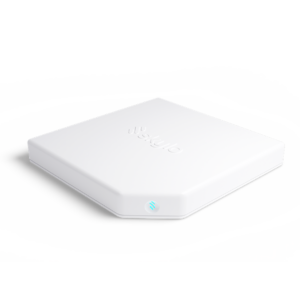Inmarsat’s L-band network in geostationary orbit (GEO) will provide the global capacity backbone for Skylo’s technology, the companies announced June 8.
Using a compact satellite terminal called Skylo Hub that operates like a wireless hot spot for nearby sensors, Skylo’s technology takes advantage of cellular narrowband IoT protocols to connect devices in remote areas.
Parth Trivedi, Skylo CEO and co-founder, said using existing satellites this way enables it to lower service costs with data plans that start at $1 a month.
He said this is opening up applications in remote areas ranging from tracking and managing the efficiency of vaccines to advancing precision farming.
Skylo said it had secured a total $116 million in early 2020, after its latest funding round led by Japanese internet company SoftBank raised $103 million.
On Aug. 18, Skylo announced a partnership with Sony Semiconductor Israel — owned by Japan’s Sony — to develop cellular chipsets that can connect over GEO networks.
Skylo’s services in India are provided through a partnership with state-owned telco Bharat Sanchar Nigam Limited (BSNL).
Skylo also announced a partnership June 8 with Japanese wireless provider SoftBank Mobile to expand its services to the country.
Trivedi said Skylo will be “announcing further expansion later this year.”
He pointed to forecasts showing how 13.1 billion IoT devices will be connected in 2023, with 1.2 billion of them connected via satellites.
“One important item that we’re seeing is that every day, more use cases emerge,” he said in an email.
Inmarsat also has a strategic relationship with Orbcomm, the U.S. satellite operator specializing in connecting industrial monitoring devices that was recently sold to private equity for $1.1 billion.
In October 2020, Inmarsat and Orbcomm extended their partnership to develop IoT, telematics and other applications through at least 2035.
Taiwanese chipmaker MediaTek said it successfully tested narrowband IoT technology over Inmarsat’s Alphasat in GEO in August.
Luxembourg startup OQ Technology is also exploring GEO partnerships to accelerate its access to the market, as it plans to start connecting devices with its first satellite launched to low Earth orbit (LEO) this year.



